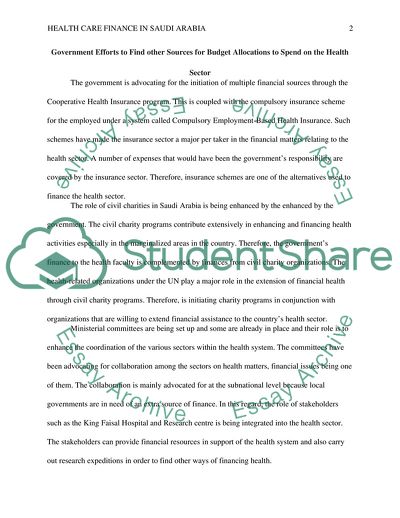Cite this document
(Health Care Finance in Saudi Arabia Assignment Example | Topics and Well Written Essays - 1750 words, n.d.)
Health Care Finance in Saudi Arabia Assignment Example | Topics and Well Written Essays - 1750 words. https://studentshare.org/health-sciences-medicine/1877652-health-care-finance-in-saudi-arabia
Health Care Finance in Saudi Arabia Assignment Example | Topics and Well Written Essays - 1750 words. https://studentshare.org/health-sciences-medicine/1877652-health-care-finance-in-saudi-arabia
(Health Care Finance in Saudi Arabia Assignment Example | Topics and Well Written Essays - 1750 Words)
Health Care Finance in Saudi Arabia Assignment Example | Topics and Well Written Essays - 1750 Words. https://studentshare.org/health-sciences-medicine/1877652-health-care-finance-in-saudi-arabia.
Health Care Finance in Saudi Arabia Assignment Example | Topics and Well Written Essays - 1750 Words. https://studentshare.org/health-sciences-medicine/1877652-health-care-finance-in-saudi-arabia.
“Health Care Finance in Saudi Arabia Assignment Example | Topics and Well Written Essays - 1750 Words”. https://studentshare.org/health-sciences-medicine/1877652-health-care-finance-in-saudi-arabia.


